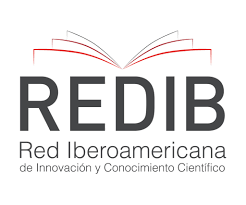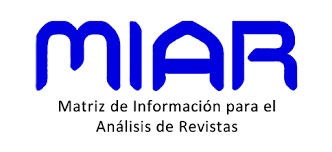Education Sensitive to Origin: Pedagogical Framework that Finds Foundation in the Thought of Edith Stein
DOI:
https://doi.org/10.51743/cpe.418Keywords:
educational anthropology, goal of education, inhabitationism, pedagogy of the we, sensitivity educationAbstract
In the predominant pedagogical frameworks of our days, rationalist, voluntarist or sentimentalist reductionisms are seen, from which it is about educating people regardless of their Origin and the singular and unrepeatable originality with which they have been given to existence. Faced with this anthropocentric confinement, Sensitive Education arises so that every person, regardless of their culture and creed, remains sensitive to their Origin and captures their own originality, which in the end is what they must accept and try to manifest with education. When educational systems are not sensitive to the original, they develop falsehood. With the aim of consolidating the validity of the pedagogical-anthropological foundation of Sensitive Education, this study seeks to show how Edith Stein’s argument explains Sensitive Education, although Stein, after her conversion, uses explicitly Christian terminology. Stein’s direct terms serve to describe Education Sensitive to the Holy Spirit, but for those who do not start from a Christian worldview, Education Sensitive to Origin can be a more non-denominational way of approaching the Original. To achieve this objective, an analytical-synthetic methodology has been followed in which essential features of Sensitive Education are proposed and in a hermeneutic manner, arguments are extracted from the writings of Edith Stein that offer support for these essential features. In conclusion, it is sufficiently shown that Edith Stein’s thought provides a pedagogical foundation to Sensitive Education.
Downloads
Global Statistics ℹ️
|
374
Views
|
263
Downloads
|
|
637
Total
|
|
References
Acevedo, B. P. (Ed.). (2020). The Highly Sensitive Brain: Research, Assessment, and Treatment of Sensory Processing Sensitivity. Academic Press. DOI: https://doi.org/10.1016/B978-0-12-818251-2.00001-1
Adler, A. (1931/1981). Wozu leben wir? Frankfurt: Fischer.
CECODAP (2023). Informe Somos Noticia 2023: aumentan las solicitudes por acoso escolar, abuso sexual y maltrato. CECODAP. https://n9.cl/ot873
FUNDADEPS (2023). La situación de la Salud Mental en España. FUNDADEPS https://n9.cl/5kpnf
Frankl, V. (2015). El hombre en busca de sentido. Herder editorial. DOI: https://doi.org/10.2307/j.ctvt7x6s4
INE (2023). Indicador 3.4.2. Tasa de mortalidad por suicidio. INE https://n9.cl/9e8az
Dąbrowski, K. (1964). Positive Disintegration. Maurice Bassett.
De Jesús, T. (1577/2005). Las Moradas. Castillo Interior. Sígueme.
Delgado, I. (2007). Edith Stein: una visión filosófica y católica de la educación. En Revista Religión y Cultura, Vol. LIII: pp. 463-498.
Hildebrand, D. Von (1997). El corazón: un análisis de la afectividad humana y divina (Vol. 1). Palabra.
Martí, G. (2009). Sustancia individual de naturaleza racional: el principio personificador y la índole del alma separada. Metafísica y persona, (1), pp. 113-129. https://doi.org/10.24310/Metyper.2009.v0i1.2849 DOI: https://doi.org/10.24310/Metyper.2009.v0i1.2849
Martínez-Domínguez. L. M. (2015). El habitacionismo: una apertura en la mentalidad educativa contemporánea. Revista de Investigación en Educación. 13(1), pp. 27-52
Martínez-Domínguez. L. M. (2022). Educación sensible: marco pedagógico y espíritu educativo. Almuzara Universidad.
Polo, L. (2016). Antropología trascendental. Vol. 15 de Obras completas. EUNSA.
Scheler, M. (1996). Ordo amoris (Vol. 23). Caparrós editores.
Stein, E. (1919). Contribuciones a la fundamentación filosófica de la psicología y de las ciencias del espíritu: Causalidad psíquica e Individuo y Comunidad. En Stein, E. (2005). Obras completas: Vol. 2. Escritos filosóficos. Monte Carmelo. (pp. 217-503).
Stein, E. (1921). Introducción a la filosofía. En Stein, E. (2005). Obras completas: Vol. 2. Escritos filosóficos. Etapa fenomenológica. Monte Carmelo. (pp. 657-912).
Stein, E. (1921). Naturaleza, Libertad y Gracia. En Stein, E. (2006). Obras completas: Vol. 3. Escritos filosóficos. Etapa de pensamiento cristiano. Monte Carmelo, (pp. 57-127).
Stein, E. (1923). Verdad y claridad en la enseñanza y en la educación. En Stein, E. (2003). Obras completas: Vol. 4. Escritos antropológicos y pedagógicos. Monte Carmelo, (pp. 66-70).
Stein, E. (1930). Sobre el concepto de formación. En Stein, E. (2003). Obras completas: Vol. 4. Escritos antropológicos y pedagógicos. Monte Carmelo, (pp. 177-192).
Stein, E. (1932). Ser Finito y Ser Eterno. En Stein, E. (2006). Obras completas: Vol. 3. Escritos filosóficos. Etapa de pensamiento cristiano. Monte Carmelo. (pp. 539-1095).
Stein, E. (1962). El Castillo Interior. En Stein, E. (2004). Obras completas: Vol. 5. Escritos espirituales. Monte Carmelo. (pp. 79-99).
Stein, E. (2004). Sobre el problema de la empatía. Ed Trotta. Madrid.
Stein, E. (1998). La estructura de la persona humana. BAC.
Stein, E. (1994) La Ciencia de la Cruz. Monte Carmelo.
Stein, E. (1935). Tentativa de una determinación de lo espiritual. En Stein, E. (2006). Acto y potencia. En: Obras completas: Vol. 3. Escritos filosóficos. Etapa de pensamiento cristiano. Monte Carmelo. (pp. 225-529).
Rus, È. D. (2008). L‘art d‘éduquer selon Edith Stein: anthropologie, éducation, vie spirituelle: Vol.1. Cahier d‘études steiniennes. Cerf.
UNESCO (2023) Igualdad de género y educación. UNESCO https://n9.cl/6ei7o DOI: https://doi.org/10.59205/rp.v7i21.207
Downloads
Published
How to Cite
Issue
Section
License
The author reserves the rights (copyright) of the published works, and the journal encourages and allows their reuse, from the preprint. The works are published in the electronic edition of the journal under a license "Creative Commons Attribution / Attribution-NonCommercial 4.0 International Public License - CC BY-NC 4.0", and can be copied, used, disseminated, transmitted and publicly exhibited.
The author / s partially transfer the property rights (copyright) of this work for the printed and online editions, provided that:
- The authorship and original source of its publication (magazine, publisher and URL of the work) is cited.
- Are not used for commercial purposes.
- The existence and specifications of this user license are mentioned.
It also declares to have respected the ethical principles of research and to be free from any conflict of interest.
"C.P.E." encourages the authors and the scientific community to the maximum promotion and dissemination of the works in their final version through:
1) Your list of contacts (emails) and social networks (Facebook, Twitter, LinkedIn ...).
2) Institutional repository of your University and public repositories (Mendeley, Cosis ...).
3) Scientific social networks (ResearchGate, Academia.edu, Kudos ...).
4) Personal or institutional website, blog, etc.
5) Google Scholar, ORCID, ResearchID, ScopusID, Dimensions, PlumX ...
6) Printed copies purchased directly and sent to specialists for reading and subsequent citation if appropriate.




















1.png)
1.png)

1.png)





.png)
.png)

.png)
1.png)
1.png)
